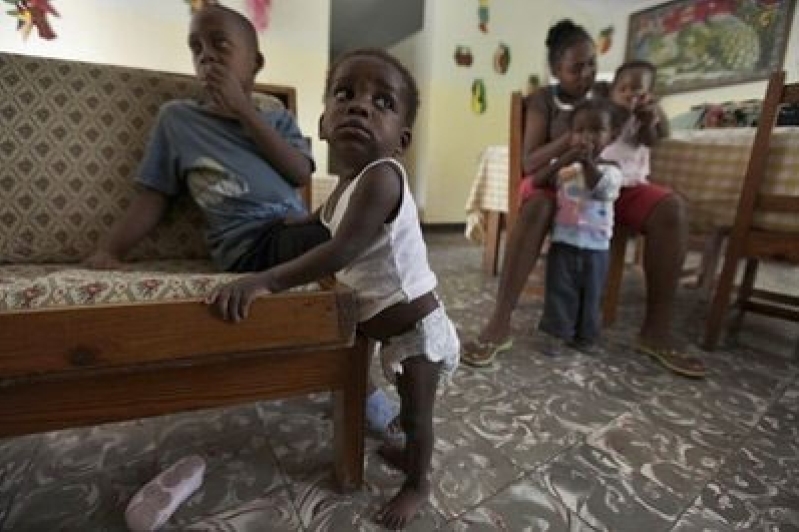
Dr. Russell D. Moore could remember the time he went to pick up two children from an orphanage to bring into his family.
He thought it would be a Hallmark moment with the children running in slow motion to him. But he found the kids to be terrified and reaching back for the only place they ever knew.
He recalled thinking, "This place is a pit, you have no idea. You're going to a place with grandparents and Legos, McDonald's happy meals. But it was all they knew."
At that moment, the Holy Spirit spoke to Moore, saying, "Well, that's you.
"I'm bringing you into a home that has many mansions and inheritance in Christ that you can't imagine. But you're continually turning back to the orphanage, toward where you came from."
Since then, Moore has felt more burdened not only for orphans to be rescued but also for families and churches to realize what they're missing by not seeing that picture in caring for orphans and what has happened to them in the Gospel (being adopted into God's family).
Dean of the School of Theology at The Southern Baptist Theological Seminary in Louisville, Ky., Moore was part of a panel of speakers and experts on Monday at the Saddleback Civil Forum on Orphans and Adoption in southern California.
The two-hour evening event drew thousands in person at Saddleback Church and online through a live webcast as they sought more information about the global orphan crisis and ways they can help.
"Orphans and vulnerable children are not a cause," Saddleback Pastor Rick Warren underscored. "They are a biblical mandate and they are a social mandate that we cannot ignore.
"Imagine a country half the size of the United States; that's how many orphans there are in the world. We're not talking about a small problem here."
Dr. Susan Hillis, senior HIV scientist at the Center for Disease Control, informed the audience that currently there are 163 million orphans in the world. Only six nations in the world have populations that exceed that number.
While the number alone may seem overwhelming, Hillis has been encouraged by the tremendous response of churches to the orphan crisis.
In Ukraine, churches have helped reduce the number of children who are in institutions or on the streets from 300,000 to 30,000, Hillis highlighted. The mother of eight adopted children has seen a fire ignited in the hearts of pastors in the east European country and churches really making a dent in the problem.
"What I'm seeing is a movement of God through the church," she said Monday, adding that she's sensing the movement around the world.
Moore has also been sensing the Holy Spirit working in the church and witnessing a renewed interest in orphan care and adoption.
"People are starting to become burdened for kids because it's not an abstract issue in more and more churches," he said. "They're not thinking of children in general ... they're thinking of little Chloe."
Though Moore had always considered himself pro-adoption, he had always thought of it in the abstract, he said.
So when his wife brought up adoption after years of infertility and miscarriage, Moore gave a response that he says horrifies him now to think of. He told his wife that he would really like to adopt but first he wanted to have his own kids.
He realizes now that during the time he kept pitying himself and asking God why He wouldn't give him and his wife children, God had already answered his prayer and provided a son in a Russian hospital.
"If I had had the family the way I had planned it out, I would be a terrible parent right now because I would just assume this is the way it's supposed to happen in my life plan; I'm in control of this.
"God said 'no, I have something better for you. I'm going to bring not only children into your household but I'm going to show you how I've loved you in those children.'"
During the Saddleback Civil Forum, families and adopted children went on stage with signs reading "Needed a family," "Drugs were in my crib," and "Found a family."
Andrew Quickle, 16, who was adopted at age four from the Ukraine, testified on stage, "I am here to speak for those who have no voice – the orphans. You see, I too was once an orphan. Life in the orphanage was not easy. I have many memories of being very hungry, taking cold showers and being lonely.
"God had a plan for me," he shared. "Far away in the U.S., my parents were praying for a child. And that child was me."
"I've been given a second chance. My parents said 'yes' to what God had put on their hearts," said Quickle, who gave his life to Christ in 2003. "I know God did not save me to be idle. I want to spend the rest of my life helping others. I know when I'm older I will be adopting.
"If adoption was good enough for Jesus, Moses and Superman, it has to be an important thing."







